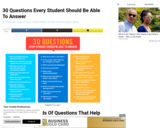
This article highlights questions every teacher should be thinking about when planning for their students.
- Subject:
- Education
- Material Type:
- Activity/Lab
- Teaching/Learning Strategy
- Author:
- Teach Thought
- Date Added:
- 08/12/2020

This article highlights questions every teacher should be thinking about when planning for their students.
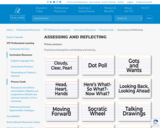
Found herein are activities that encourage practicing metacognition and thinking and learning.
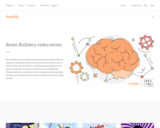
Brain Builders is an animated video series you can share with your students to help them understand what the brain does in order to read–the first time the Science of Reading has been placed in the hands of students.
Join Minh on his journey as his babysitter, Tamara, helps him cultivate a love for reading and understanding the Science of Reading. Series includes 13 episodes you don’t want to miss!
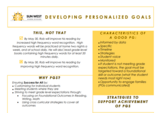
This one-page "Cheat Sheet" puts information about PGs into a sustinct format that reminds us about:- what personalized goals are and are not- why we should be using PGs- what makes a foundational outcome - characteristics of a good PG- strategies to support achievement of PGs

"Here's a sketch video about self-assessment and peer assessment. It includes an explanation of specific strategies you might use."
This video connects PBL, assessment, feedback and metacognition and how it can play a role in your classroom and help develop empowered learners!
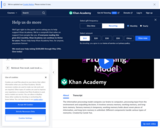
Information processing model: Sensory, working, and long term memory (video)
Learn about the information processing model of human memory.

Cognitive psychology and neuroscience have begun to dissect the neuronal mechanisms of literacy using brain-imaging techniques. During reading acquisition, our brain circuitry recycles several of its pre-existing visual and auditory areas in order to reorient them to the processing of letters and phonemes. The nature of this "neuronal recycling" process helps explain many of the children's difficulties in learning to read. Our growing understanding of the child's brain has important consequences for how education should be optimally organized.
Understanding how the brain learns to read can help us all be more effective in teaching students to read.

This 7 minute video talks about how your brain works and how it can help you learn. This is a great video for kids to learn more about themselves and help develop metacognition to become a successful learner.

This is a great introductory video to neuroscience. Understanding how the brain works can help students tap into their metacognition and be more successful learners.

Strategies to help students understand what they are doing while they are reading. Metacognition is essential to help students improve their understanding how which strategies can help them become better readers.

This free guide from RetrievalPractice.org will help you understand retrieval practice and how to get the most out of it.
Just a few strategies include:
- Clickers or Colored Index Cards
- Bell Work or Exit Tickets
- Page Protectors with Dry Erase Markers
The package also offers a handy "RETRIEVAL PRACTICE IMPLEMENTATION CHECKLIST".
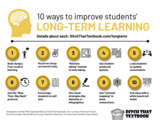
What can students do to make learning really stick?
Cognitive science tells us it's NOT to re-read our notes or textbook.
Instead, practice "retrieval" -- recalling what we've learned out of our brains, not our books.
This post outlines 10 simple tips and strategies you can use in class to make learning long-term, including:
1. Brain dumps
2. Two things
3. Retrieve taking (instead of note taking)
4. Student-produced quizzes
5. Guided conversation
6. Now, then, and way back
7. Self testing
8. Recall information visually
9. Retrieval mapping
10. White board exit ticket

A quick introduction to the metacognition cycle and how it wraps around the learning our students do. (At Sun West - for more information on metacognition reach out to your PeBL Mentor or a Learning Consultant.)

This YouTube Video explores metacognition and the metacognition cycle, which includes:
1. Assess the task/develop a clear picture
2. Evaluate strengths and weaknesses
3. Plan the approach
4. Apply strategies/monitor progress
5. Reflect/adjust approach